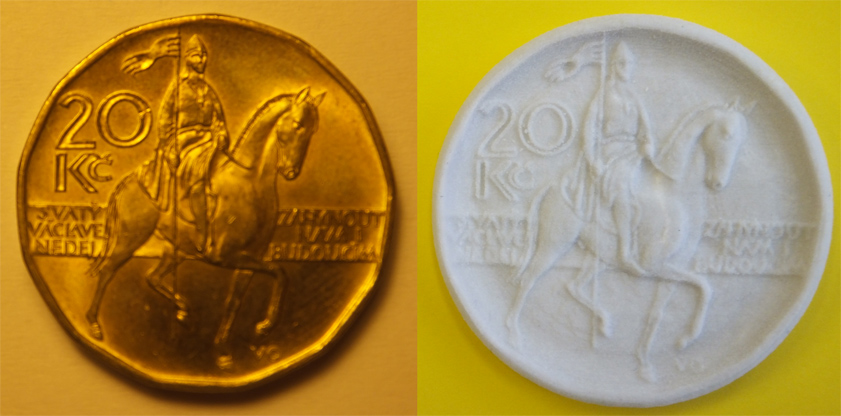
Simple 3D Surface Reconstruction Using Flatbed Scanner and 3D Print
The presented approach uses a flatbed scanner to reconstruct a surface of nearly flat objects without calibration and produce a 3D copy of the scanned object using a 3D printer.A nearly flat object is scanned in four orthogonal positions and a surface normal vector in each pixel is computed.
Vaclav Skala, University of West Bohemia
Ondrej Nedved, University of West Bohemia
Rongjiang Pan, Shandong University
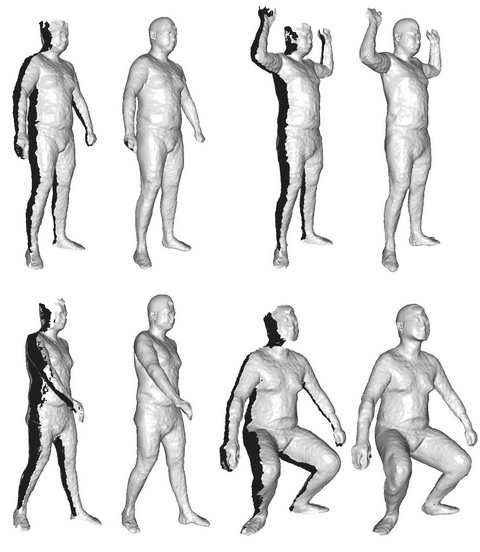
Fully Automatic Body Scanning And Motion Capture Using Two Kinects
This paper presents a novel scanning system for capturing full 3D human body motion with two calibrated Kinects and no auxiliary equipment. We capture a human’s movement sequence using two Kinects placed in the front and back, and reconstruct a consistent and hole-filled mesh animation using depth data.
Yan Cui, German Research Center for Artificial Intelligence
Will Chang, University of British Columbia
Didier Stricker, German Research Center for Artificial Intelligence
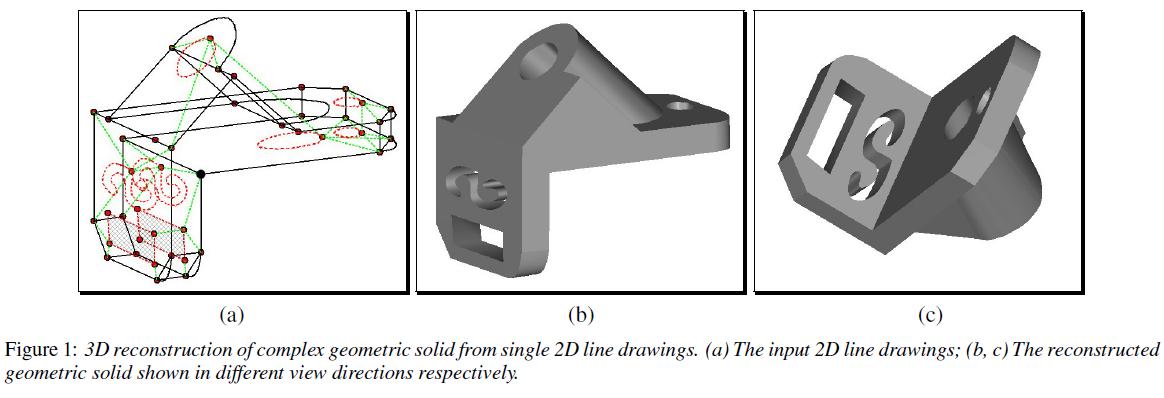
3D Reconstruction of Complex Geometric Solids from 2D Line Drawings
According to the user input 2D line drawings, a novel algorithm for reconstructing 3D complex geometric solids is presented in this work. The reconstructed geometric shapes may contain the ribbon-like faces, inner cylindrical faces and hollow polygonal faces, etc.
Yongwei Miao, Zhejiang University of Technology
Haibin Lin, Zhejiang University of Technology
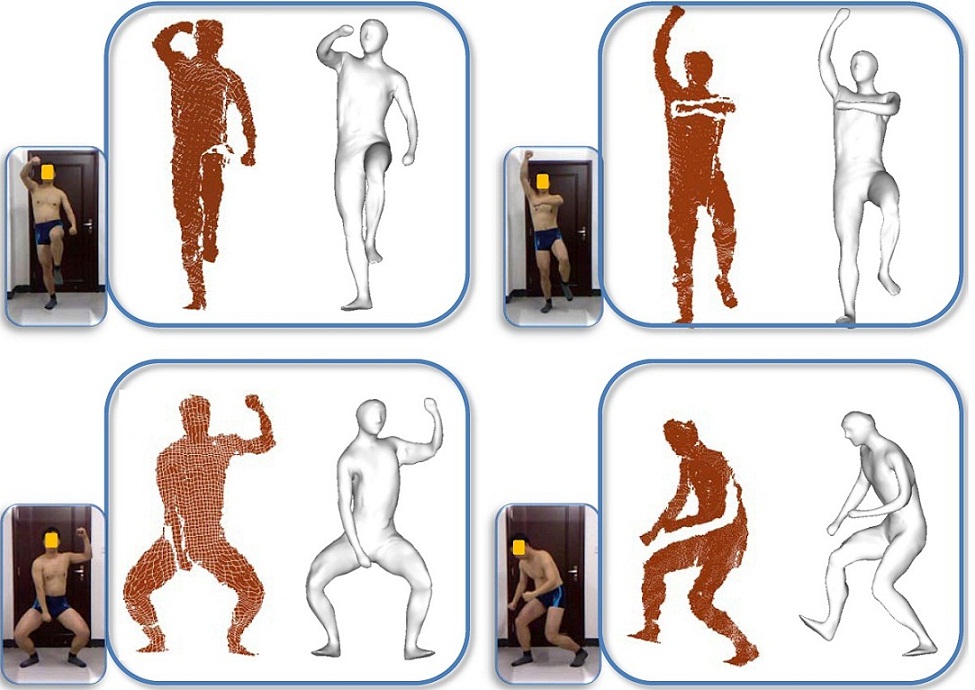
Full-body Geometry and Motion Capture from a Single Depth Camera
Markerless reconstruction of realtime full-body geometry and motion using a single commodity depth camera
Yin Chen, National University of Defense Technology
Zhi-Quan Cheng, National University of Defense Technology
Kai Xu, National University of Defense Technology
Gang Dang, National University of Defense Technology
Ralph Martin, Cardiff University
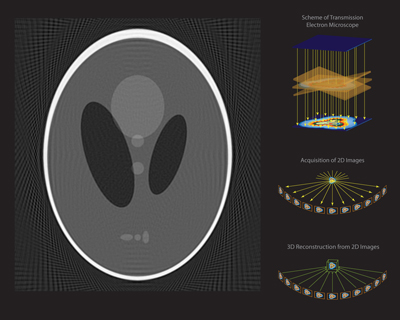
Progressive Stochastic Reconstruction Technique for Cryo Electron Tomography
Our progressive stochastic reconstruction technique based on Metropolis-Hastings is specially designed to handle typical properties of Cryo Electron Tomography. It improves contrast and thereby enables a reliable automatic detection of features in biological specimens.
Beata Turonova, Saarland University, Max Planck Institute for Computer Science
Lukas Marsalek, Deutsche Forschungszentrum für Künstliche Intelligenz GmbH Saarbrücken
Tomas Davidovic, Saarland University
Philipp Slusallek, Deutsche Forschungszentrum für Künstliche Intelligenz GmbH Saarbrücken






